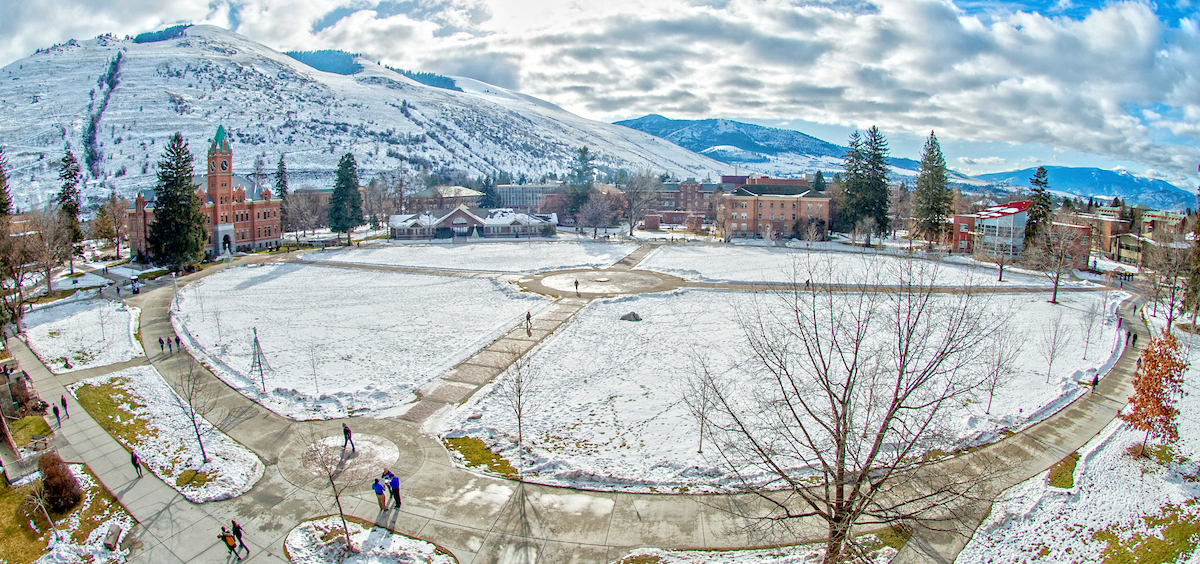UM Student Attends UN Climate Change Summit

MISSOULA – Last month, University of Montana master’s student Lily Clarke attended the UN Climate Change Summit in Madrid (COP25) as one of 12 student delegates representing the International Forestry Students Association, a coalition of 136 student groups in 79 countries invested in global conservation initiatives.
The UN climate change conferences are among the largest international meetings in the world and are the foremost global forums for multilateral discussion of climate change matters. It gathered some of the world’s top governing bodies, climate change experts and media members.

Clarke is a master’s candidate studying systems ecology in UM’s Human Dimensions of Natural Resources Lab of the W.A. Franke College of Forestry and Conservation.
Originally from Montana’s Swan Valley, her research focuses on how human communities in the Western United States retain and cultivate resilience to wildfire. Clarke holds a bachelor’s degree in biology from Lewis & Clark College, where she conducted wildfire ecology research for the Wilderness Society, the Smithsonian Institute and Harvard Forest. She has worked as a guest scientist at the Helmholtz Centre for Environmental Research in Germany and was awarded a Fulbright Research Scholarship in Nepal.
As a delegate at COP25, Clarke connected with U.S. State Department representatives, UN officials and other young people from around the globe. Clarke was able to ask diplomatic officials challenging questions about their country’s role and capacity in combatting climate change, while also engaging in conversations about integrating social and ecological disciplines with other student representatives.
COP25 presented examples of how climate change science is and isn’t translated into policy, Clarke said. Although only diplomats are allowed to partake in official negotiations, presentations she attended made it clear how invested each country was in committing to a sustainable future.
“I was both surprised and motivated by the challenging questions young people asked to diplomats at COP25,” she said. “It was the young people holding bureaucrats accountable for their actions and words. For example, if a bureaucrat claimed that they were committed to ‘sustainable natural resource extraction’ or ‘stakeholder engagement,’ it was the young people who asked the bureaucrats what exactly they meant by that.
“I found the relationships made at COP25 and some of the outcomes, such as the European Green New Deal, to be very inspiring. The final negotiations were disheartening but unfortunately not surprising seeing the lack of commitment to climate change initiatives by the world’s superpowers, including the United States.”
She would like to thank the UM Foundation, the UM Graduate School, the UM forestry college, the UM Climate Studies Program, the Mansfield Center, the UM Office of the Provost, the Associated Students of UM and family and friends for helping her attend COP25.
###
Contact: Lily Clarke, UM forestry master’s student, 406-243-5521, lily.clarke@umconnect.umt.edu.